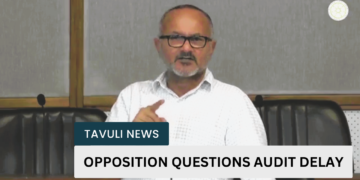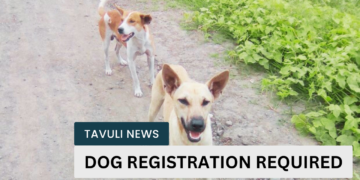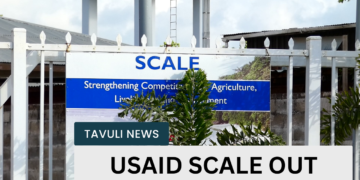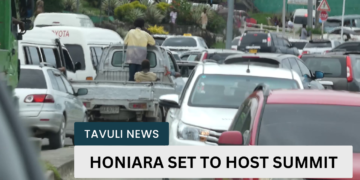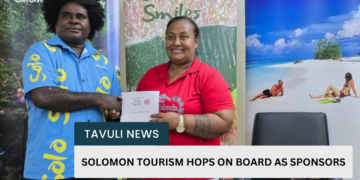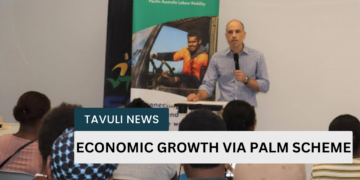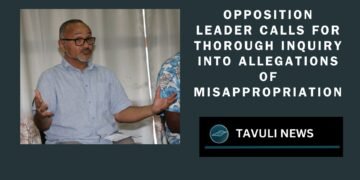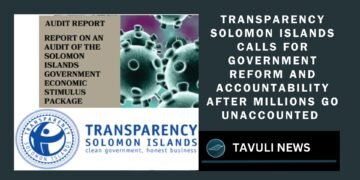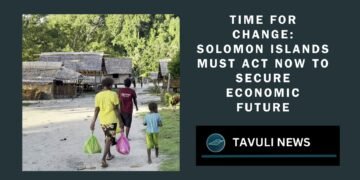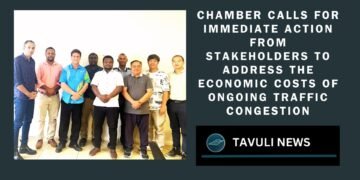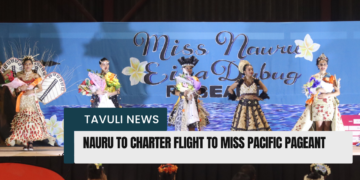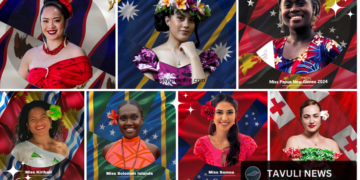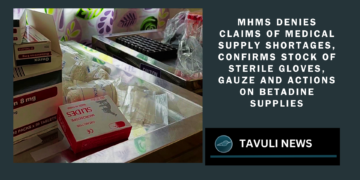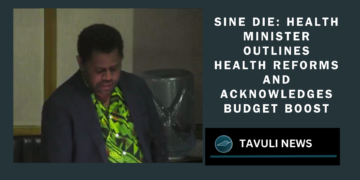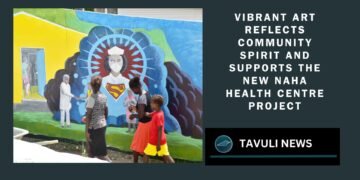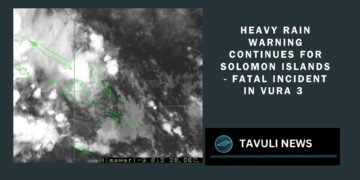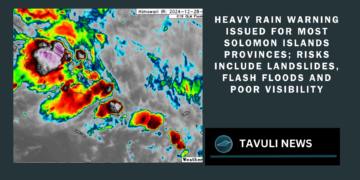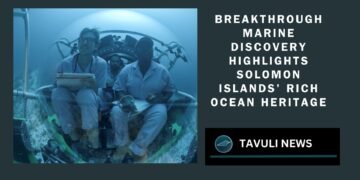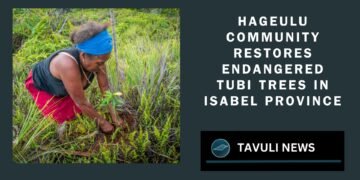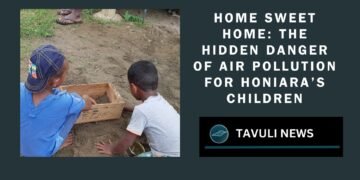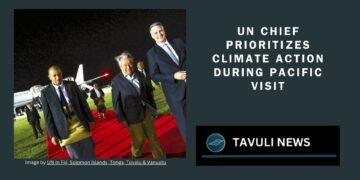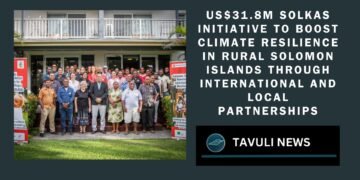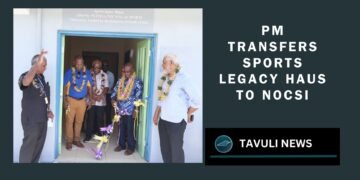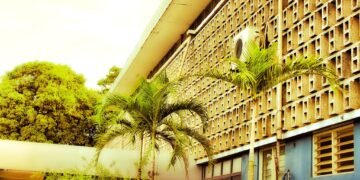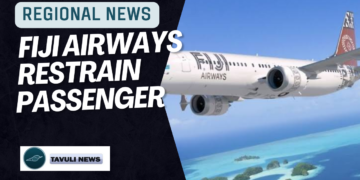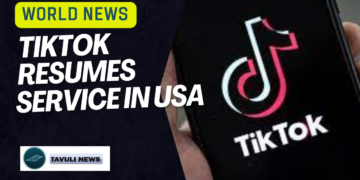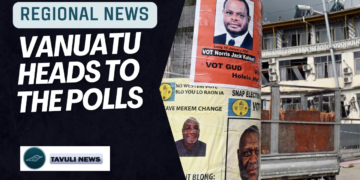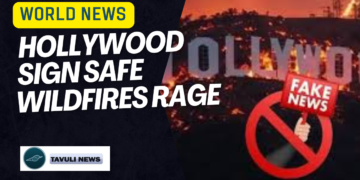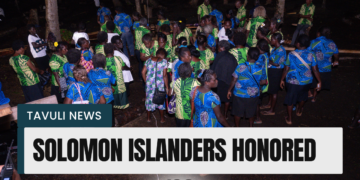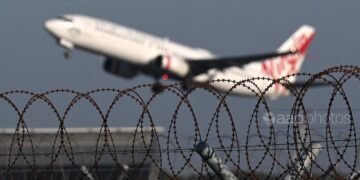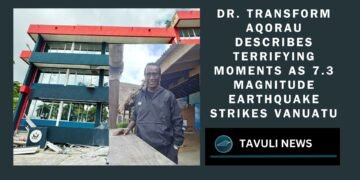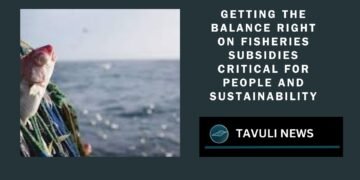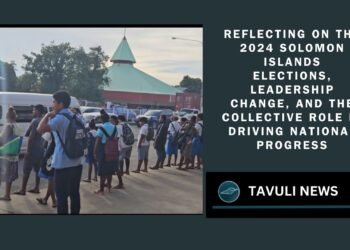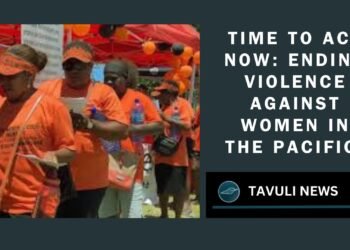Op-Ed from U.S. Embassy Honiara Chargé d’Affaires, a.i. Russell Comeau
Our relationship with the government and people of Solomon Islands has never been stronger. It is not altogether surprising given recent advancements in relations that certain actors have attempted to tear down what our two nations have built up since the eve of WWII, when the people and nations of the world sought to forge their own destinies and chart a shared future.
Today, as then, the people of the United States and Solomon Islands remain committed to rebuilding a world based on universal human rights and mutual prosperity and respect.
In September 2022, Prime Minister Sogavare along with the leaders and senior representatives of Cook Islands, Federated States of Micronesia, Fiji, French Polynesia, Nauru, New Caledonia, Palau, Papua New Guinea, Republic of the Marshall Islands, Samoa, Tonga, Tuvalu, Vanuatu, and the United States met at the White House and made a joint declaration to enhance cooperation, combat climate change, advance economic growth, and strengthen our partnership, a partnership rooted in mutual respect, transparency, and accountability.
The United States responded. We opened a U.S. Embassy in Honiara in February of this year, further strengthening a partnership that has endured through war and peace. The reopening of our Embassy is just one step in our ongoing partnership with the government and people here. The United States has a long history of engagement in Solomon Islands, providing immediate assistance during the darkest of times. To fully understand the full impact of United States in Solomon Islands, we must go back to the beginning.
The United States joined other powers in a Grand Alliance in WWII to fight the global wave of autocracy, under various guises, that erupted from a period of economic turmoil and disillusionment. By 1942, the United Nations was formed by 26 nations that, despite their differences, recognized that core principles needed to be defended. By 1948, 48 countries voted in support of the Universal Declaration of Human Rights.
To this day, the people of the United States provide foundational support to the United Nations as the largest contributor to both the peacekeeping budget and the general fund. Through national committees and direct contributions, the United States provides even more support to U.N. agencies, for example, the United States contributed $900 million to UNICEF alone in 2021.
The U.S. never left the Pacific after WWII. We rolled up our sleeves and joined the shared efforts of multilateral agencies to create a shared, more prosperous future.
In 1966, the U.S. joined the Asian Development Bank and, together with Japan, are the largest shareholders. Through its contributions to ADB, the people of the United States meet the development needs of nations across the Pacific and Asia, building airstrips, roads, and bridges in Solomon Islands, totaling nearly USD $28 billion to the region since its inception. We also support sustainable infrastructure development in support of Solomon Islands’ priorities through our membership and contributions to the World Bank and Pacific Region Infrastructure Facility.
We moved forward during the pandemic in that same spirit of cooperation. The United States provided more than 188,000 COVID-19 vaccine doses and other assistance to Solomon Islands through the COVID-19 Vaccine Global Access (COVAX), a joint effort of multinational organizations and nations co-led by the Coalition for Epidemic Preparedness Innovations, Gavi and the World Health Organization, alongside key delivery partner UNICEF. By early 2021, 30 nations were already committing resources to support the development, manufacturing, and distribution of COVID-19 vaccines to keep the people of Solomon Islands safe. Through the United States Agency for International Development or USAID, we supported COVID-19 data collection and information systems strengthening; vaccination campaigns, health worker training; and cold chain and procurement of emergency equipment and supplies.
Today, USAID runs numerous programs providing support to the people of Solomon Islands across the country. For example, through USAID’s disaster preparedness program, more than 2,500 Solomon Islanders in 20 at-risk communities are better prepared to respond in the event of a disaster with climate-smart agricultural practices and inclusive hazard risk reduction and disaster preparedness plans.
The USAID SCALE program, launched at the invitation of the Solomon Islands Government after Prime Minister Manasseh Sogavare wrote a letter to former Vice President Mike Pence. Listening to the needs of Solomon Islanders, we sought to understand where our help was needed most. Through the SCALE program, USAID has supported more than 10 local communities in Solomon Islands to promote sustainable agribusiness and forestry, as well as entered into a USD $1 million partnership agreement with Solomon Islands’ largest cocoa buyer to promote farmer education, nursery development, family plantation renewal, and improvements to processing techniques. Our development assistance is data-driven and merit-based, targeting those who need it most.
The Solomon Island Government joined the United States in Pacific Partnership 2022, welcoming the U.S. Navy Vessel Mercy over several weeks of humanitarian and cooperation activities. Over the course of more than two weeks, the team of the Mercy (a 1,000-bed medical ship that has all the capabilities found in a modern hospital) held 149 medical training sessions, supported 5,610 patient encounters, conducted 61 surgeries, trained local professionals on the operation of a CT scanner, repaired two hospital wards, hosted a three-day humanitarian and disaster relief conference, and led 40 community engagement events. The visit also provided an economic boost to the local economy. Pacific Partnership proved that our commitment to Solomon Islands is tangible and enduring.
Partnership with the United States armed forces continues as our Defense POW/MIA teams work alongside Solomon Islanders to recover the remains of fallen WWII soldiers and bring our grandfathers home. These deployments employ local workers, develop the capacity of partner ministries and agencies, and enhance relationships between our two peoples – while honoring our commitments to our ancestors.
The United States has a longstanding commitment to helping Solomon Islands address unexploded ordnance (UXO) contamination. The United States has provided more than $7.8 million since 2009 to support the explosive ordnance disposal (EOD) unit with the Royal Solomon Islands Police Force. This included training 13 engineers who have conducted over 1,200 EOD callouts to destroy more than 29,746 items of UXO. On January 1, 2023, the United States deepened its UXO partnership with Solomon Islands with The HALO Trust—also known as HALO—which began its U.S.-funded project to locate and track World War II legacy UXO while providing further training and capacity building to the Royal Solomon Islands Police Force EOD unit. Through this project, the United States aims to use existing data and historical records, as well as conducting search activities, to update the national UXO database . This information will inform future explosive ordnance risk education and explosive hazard responses to UXO by the Royal Solomon Islands Police Force EOD unit. U.S. funding will also provide technical advice while assisting the Ministry of National Police to establish a UXO coordination office. Additional support being offered to Solomon Islands includes upwards of USD $3 million annually to provide technical support, specialized training, technical engineers surveys to identify UXO contaminated areas and methodically search and clear ground of hazards, and to public awareness campaigns. The United States, along with our partners, remains committed to addressing this invisible enemy.
This year our assistance to the Solomon Islands further expanded to the Solomon Islands Government’s partnership with the Millennium Challenge Corporation (MCC). The MCC is an independent U.S. foreign assistance agency with the mission of reducing poverty through economic growth. Recently, the MCC and the Government of the Solomon Islands entered a publicly-available agreement that defines the MCC’s USD 20 million (SBD 160 million) investment in the country’s forestry and tourism sectors. This effort is being implemented in multiple provinces and is being done under the guidance of and in complete partnership with the Solomon Islands Government. This initiative seeks to ensure that natural resources in Solomon Islands endure for generations to come, and that the rewards from international tourism benefit the traditional caretakers and landowners who have kept Solomon Islands beautiful for centuries.
As Deputy Secretary of State Wendy Sherman said at the 80th anniversary of the battle of Guadalcanal, “Some around the world seem to have forgotten the awful lessons learned here, or perhaps never took them to heart in the first place. Leaders who believe that others must be diminished if they are to rise. Leaders who believe that coercion, pressure, and violence are tools to be used with impunity. Leaders who believe that the principles and institutions the world set up after the Second World War—the rules-based international order that has enabled peace and prosperity in the Indo-Pacific and around the world for generations—can be ignored and undermined, diminished and destroyed.”
Indeed, some actors have forgotten these lessons and seek to drive a wedge between the United States and our partners and allies. Such efforts will fail. Our relationship with the Solomon Islands has never been stronger as we accelerate our collaboration to build a free, open, and prosperous Indo-Pacific region.


